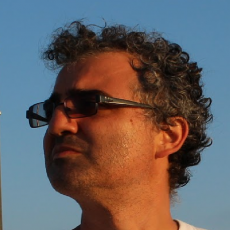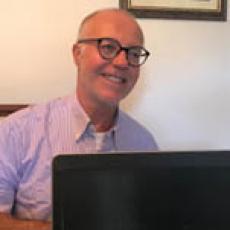Objectives
GENERAL OBJECTIVES:
The main purpose of Physics Laboratory II is that of introducing students to an actual research environment, with group working and sharing duties, to exploit the different interests and competencies by means of the variety of experimental methodologies studied in the previous course Physics Laboratory I. Students should also become able to repeat a typical experiment of contemporary physics, under a supervisor guidance, to understand and to discuss and present the results: to run an experiment or let a new experimental apparatus run, data collection, acquisition programs, upgrading or generation of data analysis codes, eventually interpretation and discussion of the results, in a written report and in an oral presentation.
At the end, students will be able to:
- assemble and document a relevant bibliography for a physics experiment
- prepare a journal-style manuscript using scientific typesetting software
- plan and conduct experimental measurements in physics while employing proper note-taking methods and the required safety procedures
SPECIFIC OBJECTIVES:
A - Knowledge and understanding
OF 1) Knowledge of basic experimental techniques and of their theoretical foundation in any specific curricular area
OF 2) To be able to conceive an experiment for relevant topics in his/her own research field
B - Application skills
OF 3) Knowing how to interpret, analyze and discuss experimental data
C - Autonomy of judgment
OF 4) To be able to integrate the acquired knowledge in order to apply them in the more general context within any specific curricular area
D - Communication skills
OF 5) Capability to communicate with experts on experimental results and strategies
E - Ability to learn
OF 6) To be able to read independently experimental scientific texts and articles in order to elaborate on topics introduced in the course.
Channels
1
 GIANLUCA CAVOTO Teacher profile
GIANLUCA CAVOTO Teacher profile
Programme
Introductory lessons to the lab experiments 6-7 hours
Radioprotection lesson 3 hours
About 20 experiments are programmed with about three students for each group.
One group should realized one experiment only during the semester.
Topics:
- Muon lifetime
- GEM optical readout
- Cherenkov light from inorganic crystal
- Ultrapure germanium detector spectroscopy
- Scintillating fiber hodoscope
- Scintillating crystals sphere
- Various experiences connectde to the VIRGO lab (gravitational wave) (3-4 groups)
- Positron emissione tomography sensors
- Micromega based gas detector
- Drift chamber gas detector
- Programming and using GPU and FPGA
- Kinetic inductance detectors
- Timing with LYSO crystals
- Accelerator physics experiments (3 groups at LNF)
Full list:
https://drive.google.com/file/d/1C_UzzKwWyThgVKFCamU0ldvEpfYg21GN/view?usp=sharing
The lab activity lasts about 100 hours.
Adopted texts
Previous reports of the experimental activity
Bibliography
Manuals of instruments present in the lab
Prerequisites
A) Elementary programming skills, programming languange among C, C++, Python, Fortran B) Elements of statistica and probability theory C) Progamme of the Phys Lab I course
Frequency modes
About 100 hours in lab with some introductory lesson at the beginning of the semester
Exam modes
Every group must write a report describing the results of the lab experience.
During the oral test the students will present (using slides) their results and a discussion will follow.
Students who attended the laboratory without any relevant contribution to the activity and to the editing of the report are evaluated with 18/30. Students who attended the laboratory, with a relevant contribution to the activity and to the editing of the report are evaluated with a mark up to 26/30. Students who met most of the goals defined for their lab experiment, having contributed significantly to the activity and to the editing of the report are evaluated with a mark up to 28/30. Students who met all the goals defined for their lab experiment, having given an original contribution to the activity and to the editig of the report are evaluated with a mark up to 30/30 cum laude.
| Exam reservation date start | Exam reservation date end | Exam date |
|---|---|---|
| 01/04/2022 | 30/04/2022 | 09/05/2022 |
| 01/06/2022 | 15/06/2022 | 20/06/2022 |
| 01/07/2022 | 15/07/2022 | 21/07/2022 |
| 01/07/2022 | 25/08/2022 | 19/09/2022 |
| 01/10/2022 | 20/10/2022 | 10/11/2022 |
| 01/11/2022 | 14/11/2022 | 15/11/2022 |
| 01/01/2023 | 18/01/2023 | 23/01/2023 |
2
 CARLO MARIANI Teacher profile
CARLO MARIANI Teacher profile
Programme
Syllabus
Experimental work on Physics of Matter. Experimental study of low-dimensional systems and nanostructures, by means of diffraction, opticak and electron spectroscopy techniques. Ultra-high-vacuum environment, low-energy electron diffraction, photoelectron specrtoscopy. Small groups laboratory activity, in the laboratories of Physics of Matter of the Department (https://www.phys.uniroma1.it/fisica/ricerca/aree-tematiche-e-gruppi-di-ricerca/struttura-materia-e-fisica-biosistemi).
Adopted texts
- scientific papers concerning the specific experimental techniques of the laboratory, given by the tutor of the chosen laboratory
- notes available on the web site: https://elearning2.uniroma1.it/login/index.php
Bibliography
a few chapters selected and uploaded in the web site*, from: A. Zangwill, Physics at Surfaces, Cambridge Univ. Press H. Lüth, Solid surfaces, interfaces and thin films, Springer F. Bechstedt, Principles of Surface Physics, Springer. * https://elearning2.uniroma1.it/login/index.php
Prerequisites
Knowledge of the foundations of structure of matter. Knowledge of the foundations of spectroscopy. Knowledge of the arguments treated in the course of Physics Laboratory I.
Frequency modes
Participation to the explanations and discussions.
Exam modes
Written elaboration about the experimental techniques shown during the course.
Students must answer to a few questions to verify their knowledge of the syllabus and/or queries (also with numerical solutions) to quantify their in-depth knowledge.
Students who answer in a sufficient way to the questions without being able to resolve the queries will be scored with 18/30; students who answer in a good way to the questions and are able to propose a solution to the queries will be scored up to 24/30; students who answer in a very good way to the questions and can precisely describe the solutions of the queries will be scored up to 27/30; students who demonstrate a full knowledge of the syllabus, with an exact solution of all the queries, also showing a critical approach, will be evaluated up to 30/30 cum laude.
| Exam reservation date start | Exam reservation date end | Exam date |
|---|---|---|
| 02/10/2018 | 24/01/2022 | 25/01/2022 |
| 02/10/2018 | 14/02/2022 | 15/02/2022 |
| 02/10/2018 | 06/04/2022 | 07/04/2022 |
| 02/10/2018 | 22/06/2022 | 23/06/2022 |
| 02/10/2018 | 14/07/2022 | 15/07/2022 |
| 02/10/2018 | 14/09/2022 | 15/09/2022 |
| 05/10/2022 | 15/11/2022 | 16/11/2022 |
| 05/10/2022 | 23/01/2023 | 24/01/2023 |
 LIVIA ELEONORA BOVE Teacher profile
LIVIA ELEONORA BOVE Teacher profile
Programme
Syllabus
Experimental work on Physics of Matter. Experimental study of low-dimensional systems and nanostructures, by means of diffraction, opticak and electron spectroscopy techniques. Ultra-high-vacuum environment, low-energy electron diffraction, photoelectron specrtoscopy. Small groups laboratory activity, in the laboratories of Physics of Matter of the Department (https://www.phys.uniroma1.it/fisica/ricerca/aree-tematiche-e-gruppi-di-ricerca/struttura-materia-e-fisica-biosistemi).
Adopted texts
- scientific papers concerning the specific experimental techniques of the laboratory, given by the tutor of the chosen laboratory
- notes available on the web site: https://elearning2.uniroma1.it/login/index.php
Prerequisites
Knowledge of the foundations of structure of matter. Knowledge of the foundations of spectroscopy. Knowledge of the arguments treated in the course of Physics Laboratory I.
Exam modes
Written elaboration about the experimental techniques shown during the course.
Students must answer to a few questions to verify their knowledge of the syllabus and/or queries (also with numerical solutions) to quantify their in-depth knowledge.
Students who answer in a sufficient way to the questions without being able to resolve the queries will be scored with 18/30; students who answer in a good way to the questions and are able to propose a solution to the queries will be scored up to 24/30; students who answer in a very good way to the questions and can precisely describe the solutions of the queries will be scored up to 27/30; students who demonstrate a full knowledge of the syllabus, with an exact solution of all the queries, also showing a critical approach, will be evaluated up to 30/30 cum laude.
3
 ALESSANDRO NUCARA Teacher profile
ALESSANDRO NUCARA Teacher profile
Programme
The first part of the course is devoted to seminars [40 hours]
Main Topics
- Principles of absorption spectroscopy
- VIS-UV spectroscopy applied to biological macromolecules
- Principles of Fluorescence Spectroscopy
- Time resolved fluorescence of biological systems
- FRET: principles and applications
- Infrared specttroscopy of biological macromolecules
- Protein-fibril transitions by spectroscopy
- Laser Transmission Spectroscopy
- Nano and micro systems for drug delivery
- Self propelled micromachine
- Holographic spectroscopy and microscopy
- Coherent Raman spectroscopy for biosystems
- NMR in biophysics
- Analysis of gene and protein sequences
- Experiments of Dynamics Light Scattering in soft matter
- Biomolecules in cultural Heritages
- Infrared and Terahertz Spectroscopy of Spikes Proteins and RNA of Corona Viruses
- Rheology of complex fluids
- APE Lab and the Brain
- Water and biological matter under extreme conditions
- Collective behavior in biological systems
- Raman spectroscopy in biophysics
- Applications of SERS spectroscopy to biophysics
- Effective Network Inference Methods
- Mid-Infrared Microscopy with Synchrotron Radiation applied to Channelrhodopsin
- Cellular Stochasticity
- Codon Bias - Protein Crystals
- Protein intrinsic disorder
The second part includes laboratory internship [60 hours]
Adopted texts
Cantor and Schimmel :
Biophysical Chemistry part II
Walla:
BIophysical Chemistry
Exam modes
evaluation of the internship activity
followed by an interview on general topics
| Exam reservation date start | Exam reservation date end | Exam date |
|---|---|---|
| 21/04/2022 | 04/07/2022 | 11/07/2022 |
| 21/04/2022 | 18/09/2022 | 26/09/2022 |
| 07/11/2022 | 07/11/2022 | 08/11/2022 |
| 06/12/2022 | 20/01/2023 | 23/01/2023 |
- Academic year: 2021/2022
- Curriculum: Particle and Astroparticle Physics (Percorso valido anche fini del conseguimento del titolo multiplo italo-francese-svedese-ungherese) - in lingua inglese
- Year: First year
- Semester: Second semester
- SSD: FIS/01
- CFU: 9
- Attività formative caratterizzanti
- Ambito disciplinare: Sperimentale applicativo
- Lab (Hours): 108
- CFU: 9
- SSD: FIS/01
